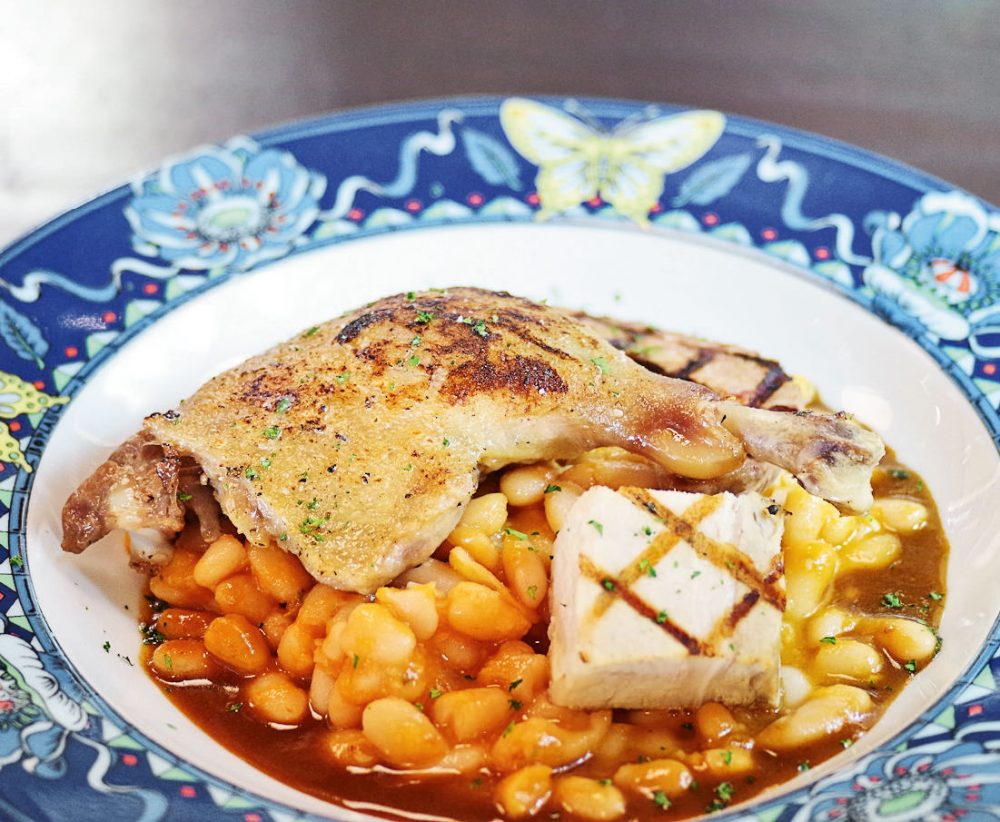It took over a year, and visits to nearly 90 possible locations, before Hervé Martin found what he was looking for. In a bit of irony, he found his ideal spot less than two blocks from his home. He calls it the French Table, and he keeps a brisk business on Main Street near 23rd, as locals stream steadily through the door to savour his traditional French countryside cooking. His work for the King of Belgium, Leopold III, at his castle in Waterloo, has always come in handy.
Martin was the resident restaurant genius at the Hermitage on Robson Street for over two decades, seven years as owner and executive chef, before 18 as maitre’d and host. But even before the building that housed his restaurant was set to close in 2011, he had an eye to moving on. “I knew I did not want to stay downtown,” Martin says. “Robson Street had changed so much over the years, and it was time for me to move. But to keep the old name and the old concept, that would be a mistake.” And so the search began. “The art and the soul are the same, to create good food with passion. But no more lobster tails, no more lamb racks. I use a snail recipe that I got from my grandmother.”
There are plenty of stories to tell, about the accident in 1993 that left him unable to cook for nearly six months, for example. It meant Martin could serve as host, but not do the cooking. “But when it came time to do the books for that year, I discovered something interesting. The business was much more successful when I was not in the kitchen, but out on the floor talking to our guests. That changed everything for me.” And at the French Table, he cooks to train new chefs only, and otherwise continues to be the kind of host—genial, knowledgeable, and always passionate about the food, the wine—that guests keep coming back to. “Here, we are a bistro. We can do pig’s feet, or even a tête de veau, something you can’t really find even in Paris anymore.”
The décor is modern, contemporary, with a classical touch, welcoming, with warm wood and a just-the-right-sized bar presiding over the space. Reservations are basically a must, at least if you hope for a table from any given Thursday onwards into the weekend. The daily specials are something Martin takes pride in, since he can wander a bit off the beaten track. “Today, it is all about being local, that is important. But also we make our own mincemeat, ice cream, sherbert. we can do a pot-au-feu, or of course you can have your steak frites or cassoulet.” It is cooking based firmly in his childhood growing up, in Burgundy. “Here, in this place, I am a countryside restaurant. I grew up with this, and now I want to share that experience with my guests.”
Martin is attentive; details do not slip by him as the evening’s service proceeds. Clearly, there is a lot of appetite for this kind of authentic food, done with a certain elegance and flair that suggest this bistro has fine dining DNA. The beet salad, generous, has a delicately dressed frisée, and a plump goat cheese “dumpling” with it. At lunch, a perfect, somewhat runny, omelette is always there, and such things as croque monsieur and moules et frites.
Dinner brings more options, including duck confit, and, as Martin attests, “sweetbreads, the same way we had them as kids.” Coq au vin, a bouillabaisse; you can almost forget you are in urban Vancouver, and believe that is not traffic outside, but a grazing herd of sheep.
Martin’s previous restaurant boasted one of the city’s finest French wine lists, Burgundy in particular. “It is my part of the world, after all,” he says. He has significantly culled the list, making it more price appropriate for the French Table, and of course much leaner. Still, the selections are plentiful enough, and wise. And he is continually refreshing, honing the list; “sorry I cannot stop it!” No one will leave unnecessarily thirsty.
The French Table is a fine example of a significant shift in our culinary culture, trending away from tasting menus and highly formal settings, toward more “comfort food”, and comfortable rooms. There is a place for all types of restaurants, of course, and the demise of fine dining is, at the very least, exaggerated. But it is good to know you can partake in a little bit of the rustic heart of France, right here on Main Street.









